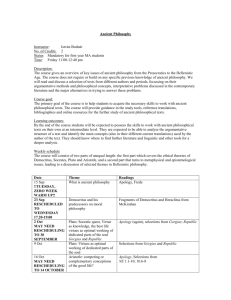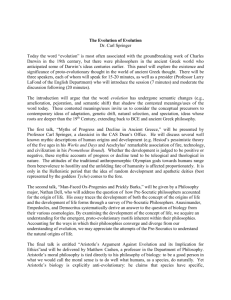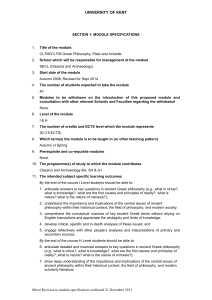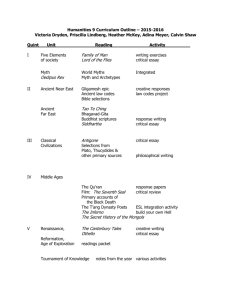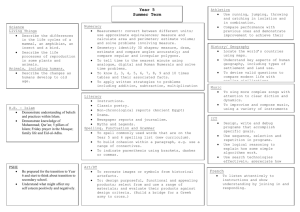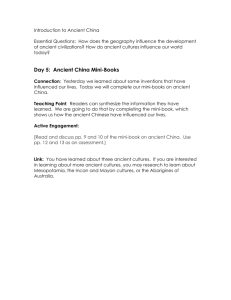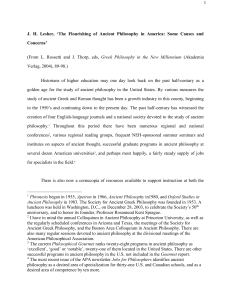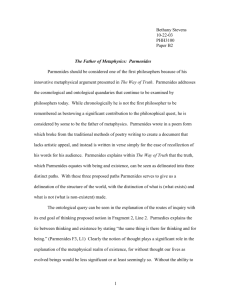ancient-philosophy20122013fall
advertisement
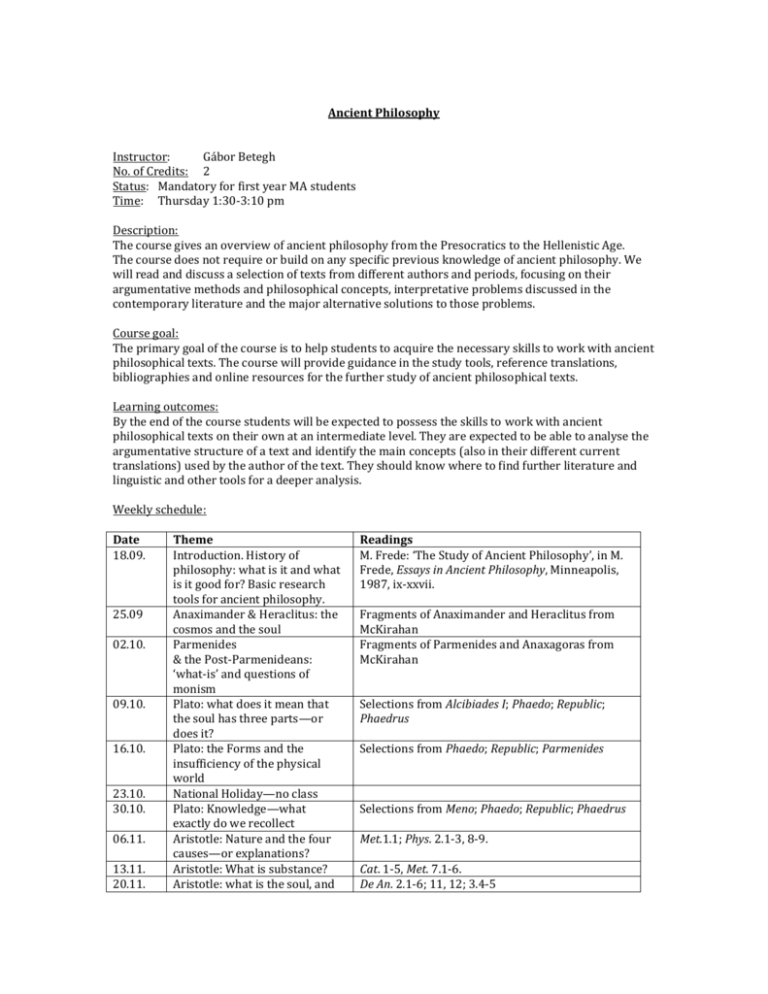
Ancient Philosophy Instructor: Gábor Betegh No. of Credits: 2 Status: Mandatory for first year MA students Time: Thursday 1:30-3:10 pm Description: The course gives an overview of ancient philosophy from the Presocratics to the Hellenistic Age. The course does not require or build on any specific previous knowledge of ancient philosophy. We will read and discuss a selection of texts from different authors and periods, focusing on their argumentative methods and philosophical concepts, interpretative problems discussed in the contemporary literature and the major alternative solutions to those problems. Course goal: The primary goal of the course is to help students to acquire the necessary skills to work with ancient philosophical texts. The course will provide guidance in the study tools, reference translations, bibliographies and online resources for the further study of ancient philosophical texts. Learning outcomes: By the end of the course students will be expected to possess the skills to work with ancient philosophical texts on their own at an intermediate level. They are expected to be able to analyse the argumentative structure of a text and identify the main concepts (also in their different current translations) used by the author of the text. They should know where to find further literature and linguistic and other tools for a deeper analysis. Weekly schedule: Date 18.09. 25.09 02.10. 09.10. 16.10. 23.10. 30.10. 06.11. 13.11. 20.11. Theme Introduction. History of philosophy: what is it and what is it good for? Basic research tools for ancient philosophy. Anaximander & Heraclitus: the cosmos and the soul Parmenides & the Post-Parmenideans: ‘what-is’ and questions of monism Plato: what does it mean that the soul has three parts—or does it? Plato: the Forms and the insufficiency of the physical world National Holiday—no class Plato: Knowledge—what exactly do we recollect Aristotle: Nature and the four causes—or explanations? Aristotle: What is substance? Aristotle: what is the soul, and Readings M. Frede: ‘The Study of Ancient Philosophy’, in M. Frede, Essays in Ancient Philosophy, Minneapolis, 1987, ix-xxvii. Fragments of Anaximander and Heraclitus from McKirahan Fragments of Parmenides and Anaxagoras from McKirahan Selections from Alcibiades I; Phaedo; Republic; Phaedrus Selections from Phaedo; Republic; Parmenides Selections from Meno; Phaedo; Republic; Phaedrus Met.1.1; Phys. 2.1-3, 8-9. Cat. 1-5, Met. 7.1-6. De An. 2.1-6; 11, 12; 3.4-5 27.11. 04.11. what happens to it when we see red? Aristotle: competing or complementary conceptions of the good life? Epicureans and Stoics on freedom and responsibility NE 1.1-10; 10.6-8 Selections from Long&Sedley Requirements: • regular attendance • regular preparation • active participation in discussions • 2 2-page informal position papers throughout the term • for one-year MA students only: 2000-word term paper Assessment: • For two-year MA students: in-class written examination as part of the History of Philosophy Final Examination at the end of the first year • For one-year MA students: 20% class participation; 20% position papers; 60% term paper
